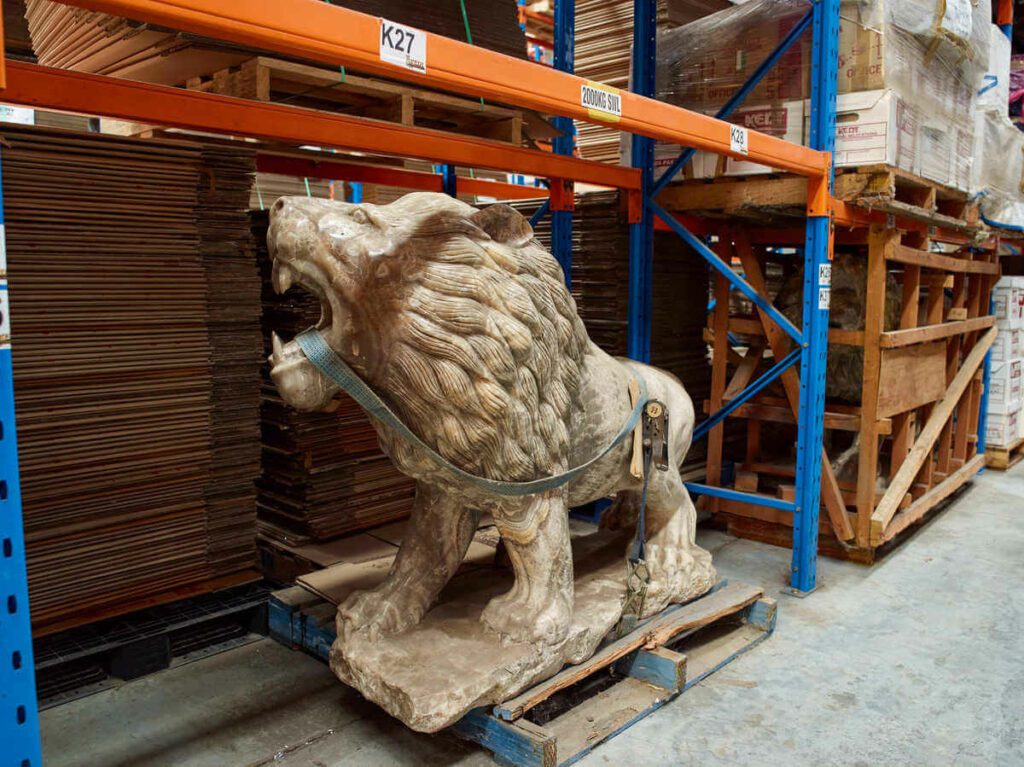
When it comes to finding extra space for your belongings, self-storage facilities are a popular choice for individuals and businesses alike. These storage facilities offer a convenient solution for temporarily (or long-term) storing items that may not fit in your home or office. Assuming you have first determined the storage unit is safe, you will now need to understand what you can and cannot store, so as to ensure compliance with regulations and to maintain a safe environment. In this article, we will explore different types of items that are suitable for self-storage and which items should be kept elsewhere.
1. Acceptable & Commonly Stored Items
Self-storage units can accommodate a wide range of items, from furniture and appliances to personal mementos and seasonal decorations. So, what can I store in a storage unit? Here’s a breakdown of commonly stored items:
a) Furniture: Whether you’re downsizing, moving, or redecorating, self-storage can accommodate various furniture pieces. Sofas, tables, chairs, and beds can all be stored safely until you need them again. Remember to disassemble larger items, wrap them in protective covers, and label them for easy identification.
b) Household Appliances: Refrigerators, washers, dryers, and other household appliances can also be stored in a self-storage Before storing, ensure that these items are clean and dry to prevent the growth of mould or mildew. It’s advisable to keep the doors slightly ajar to allow air circulation.
c) Seasonal Items: Many people turn to self-storage to keep seasonal items like holiday decorations, camping gear, and winter clothing. Storing these items in a dedicated space frees up valuable space in your home, all while keeping them safe and easily accessible when needed. Hot tip: properly label and organise these items to easily locate them when needed.
d) Documents and Files: Self-storage is an excellent solution for archiving important documents, old tax records, or business files. Invest in sturdy, weatherproof boxes, and consider labelling them for quick retrieval. It’s a good practice to create an inventory list and keep it handy for reference.
e) Electronics: Computers, televisions, and audio equipment can be safely stored in a self-storage unit. We recommend removing any batteries and pack them carefully to avoid damage.
2. Self-Storage Prohibited Items (Don’t Store!)
While self-storage units are versatile, there are certain items that you cannot store due to safety, insurance, or self-storage laws in Australia. This can be because goods are dangerous, may cause issues for other units (such as pests) or because they are simply illegal. So when it comes to answering the question, “what can’t I store in a storage unit?”, here’s a breakdown of what you cannot store:
a) Perishable Items: Avoid storing perishable goods that can rot or decay, such as food, plants, or any organic material. These items can spoil, attract pests, and cause damage to your unit and other belongings.
b) Hazardous Materials: For safety reasons, it’s crucial to avoid storing flammable, explosive, or toxic substances – which are all strictly prohibited in self-storage units. This includes petrol, diesel, propane tanks, chemicals, fireworks, and firearms. Such items pose a significant risk and will violate local regulations.
c) Illegal Items: It goes without saying that storing illegal items, such as illegal substances, stolen goods, or counterfeit products, is strictly prohibited. Not only is it illegal, but it also jeopardises the safety and reputation of the self-storage facility.
3. Safety Considerations and Self-Storage Packing Tips:
When packing and storing your belongings, it’s important to consider safety factors to help prevent accidents or damage. Here are a few safety and packing tips to keep in mind:
a) Disassemble Furniture: Save on space even more by disassembling large furniture whenever possible to make it easier to move and store.
b) Proper Packing: Use sturdy boxes and packing materials to protect fragile items, which will also help protect your belongings from damage during transportation and storage.
c) Stack and Secure: Stack boxes and furniture vertically to maximise space and use straps or ropes to secure items and prevent them from falling during storage. We also recommend placing heavier items at the bottom of the boxes and stacking them carefully, so as to avoid any collapse or damage.
d) Labelling: Label each box with its contents to easily find what you need later.
e) Climate-Controlled Facilities: Choose a storage warehouse facility like Kent Storage, which offers state-of-the-art climate-controlled units. These special storage container units regulate temperature and humidity, protecting your items from extreme conditions.
For further reading on effective packing, as well as tips on how to best protect your stored items, we recommend you read our articles, “Moving Boxes 101: How to Choose the Right Packing Materials for Secure Storage” and “Secure Storage Solutions: Tips for Protecting your Belongings”.
Conclusion
In conclusion, self-storage is a convenient option for storing a variety of items, from furniture and appliances to seasonal decorations. By understanding what you can and cannot store, considering factors such as perishability, flammability, legality, and safety, you can ensure a smooth storage experience. Remember to pack and label your items properly, and for the best storage experience, choose a professional and credible storage provider, like Kent Storage.
Storage Solutions with Kent Storage
When it comes to excellent storage solutions, Kent Storage is a name you can trust. With their state-of-the-art climate-controlled facilities across Australia, your belongings are in safe hands. Whether you need short-term or long-term storage solutions, Kent Storage offers mobile storage units and container storage units to suit your unique requirements.
With over 75 years’ industry experience, you can absolutely trust Kent Storage to provide the secure storage solutions you deserve. Don’t let clutter overwhelm your space, trust Kent Storage to provide you with the extra room you need. Get your Free Quote today. Call 1300 836 803 or Get in Touch.
